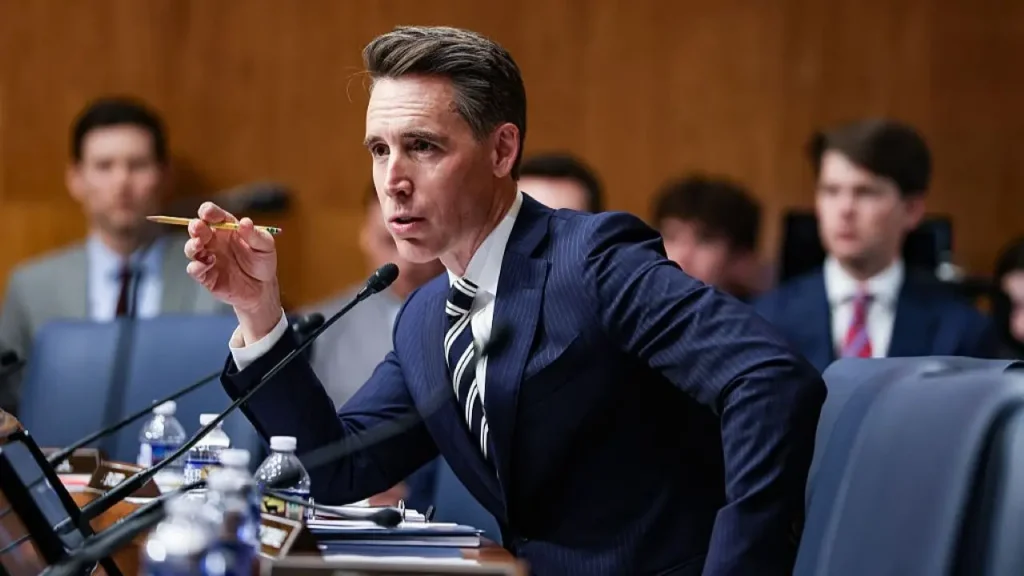Hawley Fights for Farmers and Food Assistance During Government Shutdown
Senator Josh Hawley (R-Mo.) is taking a stand during America’s ongoing government shutdown by introducing legislation aimed at protecting two vulnerable groups: farmers and families who rely on food assistance. As the shutdown continues into its second week—now ranked as the second-longest in U.S. history—Hawley believes targeted funding for essential services shouldn’t be caught in political crossfire. His proposed bills would specifically reinstate federal funding for the Farm Service Agency and the Supplemental Nutrition Assistance Program (SNAP), both critical lifelines for millions of Americans.
“We need to start forcing Democrats to make some tough votes. We need to start holding their feet to the fire,” Hawley told Fox News Digital in an exclusive interview. The timing couldn’t be more critical for farmers, as the shutdown has coincided with harvest season across much of the country, including Hawley’s home state of Missouri. While President Trump has taken executive action to secure funding for military members, most government functions remain stalled in a political standoff that shows little sign of resolution. “I have huge respect for what President Trump has done during this shutdown with shifting the funding pools available to him to help servicemembers and police. But even he is going to run out of tools soon,” Hawley warned, suggesting that targeted legislative approaches might be necessary to protect essential services.
The political impasse has deepened with Senate Republicans, led by Majority Leader John Thune (R-S.D.), having attempted to fund the government eleven times since the shutdown began on October 1st. However, Democrats have consistently blocked these efforts, demanding significant budget changes before agreeing to reopen the government. During a White House meeting on Tuesday, President Trump accused Democrats of “holding the entire federal government hostage,” while Republican senators expressed frustration with what they view as unreasonable Democratic demands. Senate Minority Leader Chuck Schumer (D-N.Y.) has remained firm in his position, particularly regarding an extension to expiring Obamacare subsidies. Republicans have expressed willingness to address the subsidy issue after government operations resume, but Democrats want guaranteed extensions well before the subsidies expire at the end of the year.
The legislative standoff has real-world implications for everyday Americans caught in the middle. Hawley’s proposed “Fund Our Farmers Act” would ensure that the Farm Service Agency can continue its vital work supporting American agriculture during harvest season, when farmers are most vulnerable to disruptions in federal support programs. Similarly, his “Keep SNAP Funded Act” would maintain food assistance for millions of Americans who depend on the program to feed their families. “Do they really not want people to be able to eat? This situation is ridiculous,” Hawley remarked, highlighting the human cost of the prolonged government closure and challenging Democrats to justify their position on these specific humanitarian issues.
The current shutdown strategy from Senate Republicans appears to be one of persistence—continuing to put the same funding bill on the floor repeatedly in hopes that public pressure will eventually force Democrats to reconsider their position. “They want $1.5 trillion in new spending. They want free healthcare for people who are noncitizens in this country. That is just a flat nonstarter,” Thune stated during the White House meeting, emphasizing that such demands “won’t pass the Senate. It won’t pass the House. It won’t be signed into law by the president.” This characterization of Democratic demands highlights the deep policy divisions that have led to the current impasse, with both sides claiming the other is being unreasonable in their negotiating positions.
As the shutdown continues with no immediate resolution in sight, Hawley’s focused legislation represents a potential middle path—addressing critical human needs without requiring a complete resolution to the broader budgetary standoff. By highlighting specific programs that enjoy bipartisan support in principle, if not in current practice, the Missouri senator is attempting to create space for limited agreement even as the larger political battle continues. For farmers preparing for harvest and families depending on food assistance, these targeted measures could provide essential relief while lawmakers continue their broader negotiations over government funding priorities. Whether Democrats will be willing to support these specific funding bills while maintaining their position on the overall budget remains to be seen, but Hawley’s approach puts a human face on the consequences of government dysfunction that affects real Americans every day the shutdown continues.













